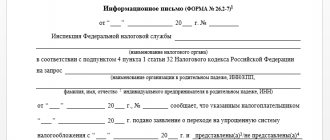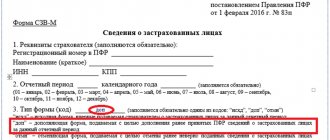VAT tax gap: what is it?
Several information resources are currently analyzing VAT “gaps”, the presence of tax evasion schemes, the level of tax burden, and other similar issues: ASK VAT (the 4th version is being tested), analytical resources FIR “information from the Bank of Russia”, FIR “transfer price", FIR Unified State Register of Legal Entities, FIR "customs", PC "PPA Selection". Sometimes the information resource “Superanalyst” is used, which studies the database of bank statements.
Fiscal officials pay special attention to “gaps” in VAT. We are talking about situations when the buyer has an invoice in the purchase book, but at the same time it is not in the seller’s sales book. This means that the buyer received a tax deduction due to the fact that the seller had to make contributions to the budget. But at the same time, the seller did not pay anything to the treasury.
Such “gaps” are called “straight”.
But the tax authorities pay the closest attention to the so-called “complex gaps”, when the taxpayer and his counterparty of the first “link” have invoices and VAT amounts reflected in their reports correctly, but the “gap”, and therefore the failure to pay VAT, occurs at 3-5 or further links. As a rule, such “gaps” indicate deliberate “schemes” for non-payment of VAT, which involve various “platforms” that manage “one-day companies”, and sometimes employees of the Federal Tax Service and banks. The fight against such schemes is one of the policy priorities of the Federal Tax Service of Russia, therefore organizations with complex gaps immediately fall under special control not only of their inspectorate, but also of the regional Office of the Federal Tax Service of Russia.
The mentioned databases find discrepancies, and then, as a rule, at the level of the regional Office of the Federal Tax Service of Russia, lists of organizations that have identified VAT “gaps” are prepared. These lists are sent to local Inspections, which formulate Requirements for the submission of relevant documents and call Taxpayers to provide explanations.
What should you be wary of?
As a rule, most entrepreneurs are now most often called to the tax office to provide explanations on their activities or to a “commission.” Tax audits are not ordered immediately after a “gap” is discovered, as this is too costly and ineffective. And the general policy in the field of tax administration is aimed at reducing audits. That is why you will first go to a commission at the Federal Tax Service of the Russian Federation.
At the same time, such calls indicate the risk of an audit. Therefore, as soon as the Federal Tax Service becomes interested in you, you must immediately begin preparation. And already at this stage you need to seek professional help from a lawyer who specializes in resolving such issues.
In particular, if you have received a Notice to appear at the tax authority to provide explanations on the company’s activities, or a Request to provide documents and information on a particular counterparty for a quarter or more, then our tax lawyers will help you navigate and correctly build a dialogue with the Federal Tax Service. We will tell you what documents need to be submitted to the Federal Tax Service, including in addition to those requested.
The taxpayer is not responsible for the counterparty, or a due diligence issue
Unjustified tax benefit: typical claims
The situation is quite banal and is widely known from established practice, in particular, to tax specialists. In relation to the Company (Case of JSC “Special Production and Technical Base Zvezdochka”), an on-site inspection was carried out and additional VAT and penalties were assessed, and a fine was imposed under clause 1 of Art. 122 of the Tax Code of the Russian Federation.
The claims concerned the relationship between the taxpayer and a number of its counterparties (suppliers of inventory and materials).
Guided by Art. 171-172 of the Tax Code of the Russian Federation, Resolution of the Plenum of the Supreme Arbitration Court of the Russian Federation No. 53 dated October 12, 2006 On unjustified tax benefits, Resolution of the Presidium of the Supreme Arbitration Court of the Russian Federation dated April 20, 2010 No. 18162/09, the court charged the Company with failure to exercise due diligence when choosing a counterparty (the choice of counterparties was not due neither to the business characteristics of the counterparty, nor to the business reputation, nor to the reduction of business risks).
Also, during the audit, through an analysis of the circumstances, the unreality of economic relationships was established, as well as the dishonesty of the counterparties.
Reality is there, due diligence is not.
However, in the appellate court, the inspectorate’s argument about the unreality of business operations involving two counterparties was rejected, which, despite this, did not lead to a positive result for the Company in relation to one of the counterparties. The deductions were still denied (citing failure to exercise due diligence). Let us note that for this partner of the Company the figures for additional charges were as follows: (VAT – 391 thousand rubles, fine – 58 thousand rubles). see Resolution 13 of the AAS dated June 27, 2019 in case No. A42-7695/2017
The inspectorate and the courts established the facts of the minimum payment of tax by the counterparty (+ lack of management and technical personnel, flaws in tax documentation, signing of documents by the “wrong person”), but the appeal court confirmed the reality of the supply of goods and materials. At the same time, despite all the flaws of the counterparty (activities with a high tax risk), the Company was unable to explain why it chose it (“due diligence”). VAT deductions were also denied, since a source for them was not generated (VAT was not paid by the counterparty)
The AC of the North-Western District, in its Resolution dated October 25, 2019, left the parties’ complaints unsatisfied (even despite the reality of the transactions with the disputed counterparty).
The position of the Supreme Court and the interim victory of the taxpayer: the most important conclusions
By ruling of the Supreme Court of the Russian Federation dated May 14, 2020 No. 307-ES19-27597, court decisions regarding the disputed counterparty (additional VAT assessment) were canceled, and the case was sent for a new consideration to the Arbitration Court of the Murmansk Region.
Detailed analysis of the reasoning of the Supreme Court of the Russian Federation
- The reality of the operations was confirmed and established.
- Taking into account the indirect nature of VAT as a tax (the burden of actual tax payment by the consumer), the taxpayer has the right to deduct VAT amounts charged to him when purchasing services (goods, works) for carrying out VAT-taxable transactions.
- A denial of the right to deduct VAT may occur if VAT is not paid to the budget in cash (the process of receiving deductions is not accompanied by the payment of VAT to the budget by the counterparty).
- It is unacceptable to hold the taxpayer responsible “for the actions of all organizations participating in the multi-stage process of paying and transferring taxes to the budget: the taxpayer’s right to a tax deduction cannot be conditioned on the fulfillment by direct counterparties (sellers, suppliers) and their predecessors of their obligation to pay VAT.”
In other words, the mere fact of non-payment of VAT by a counterparty does not mean the legality of denying the audited taxpayer the right to deduct VAT.
- “Deprivation of the right to deduct VAT from a taxpayer - a buyer who did not pursue the goal of tax evasion as a result of actions agreed upon with other persons, and in the absence of such a goal, did not know and should not have known about the violations committed by these persons, acting within the framework of expected behavior from a reasonable participant in economic turnover, would essentially mean the application of a measure of property liability for non-payment of taxes committed by other persons, including when they distort the facts of their economic activities, to the taxpayer - the buyer, who did not have the opportunity to prevent these violations and (or) avoid the onset of their consequences."
There is no evasion purpose in the Company’s actions, the Company did not know and should not have known about the violations, and with reasonable behavior, the counterparty cannot be held accountable for the actions!
- “Differentiation of the consequences caused by these violations for taxpayers - buyers, taking into account whether the latter knew and should have known about violations committed by the counterparty and third parties in the performance of the obligation to pay VAT, is necessary...” (due diligence assessment is still important).
- Numerous practices of the higher courts voiced during the consideration of the case were not properly applied to the circumstances of the case! The message: figure it out again!
- “...the courts have not established signs of withdrawal of funds by the supplier using fictitious documents in favor of third parties, including signs of cashing out, transfer of funds to low-tax foreign jurisdictions and other similar circumstances discrediting the reliability of the supplier’s tax reporting and the completeness of tax payment by the counterparty during the sales period goods to society."
- It was not properly established that VAT was not paid to the budget (the taxpayer submitted extracts from the counterparty’s sales book to the court, but the appeal court did not accept the documents). 5. “Assessing the taxpayer’s exercise of due diligence is not limited to identifying flaws in the efficiency and rationality of his business decisions...”. While no signs of evasion have been established, “judicial practice is based on the standard of prudent behavior in civil (economic) transactions expected of a reasonable participant in comparable circumstances.”
- “The criteria for exercising due diligence cannot be the same for cases of ordinary replenishment of inventories and in situations where the taxpayer purchases an expensive asset, or engages a contractor to perform a significant amount of work” - we also advise you to look at how the Supreme Court of the Russian Federation described this argument in the decision. Those. if you work as usual and make ordinary transactions, this situation cannot be compared with when you buy expensive equipment, etc.
The precautions taken cannot be the same in this case!
The Supreme Court of the Russian Federation also outlined criteria for delimiting the burden of proof of the manifestation/failure to exercise due diligence.
“Circumstances indicating that the transaction for the supply of goods was actually executed by other persons to whom the supplier did not transfer the obligation to perform it and who evaded taxation in relation to transactions aimed at fulfilling obligations to the taxpayer have also not been established by the courts.”
In reality, the counterparty can fulfill the terms of the transaction (agreement) himself or transfer execution under the Agreement to a 3rd party (as established by the court of the 2nd instance).
The case has been sent for a new trial!
We hope that this analysis was useful to you! Subscribe to our channels on Yandex-Zen and other social networks! If you have any questions on this topic, write or call us! Law Company Taxanalytics.
How to interact with the tax office?
So, you've been called. What can you do?
There are 2 options:
- Recognize the “gap”, submit an updated tax return and pay an additional amount of tax, penalties and no longer be afraid of inspectors. This is the easiest option, and in some cases it is worth keeping in mind. Please note that if VAT is charged to you based on the results of an on-site tax audit, you will also have to pay an additional fine of 40% of the corresponding amount.
- Defend your right to a tax deduction. The very fact of the presence of an unscrupulous counterparty, especially the second or subsequent “links,” does not mean that it was you who violated something. If the counterparties of the first “link” are beyond your control and actually worked, then the tax authorities may change their position and withdraw their claims against you. This is doable if you have the proper evidence.
Note! Unfair actions of second and third level counterparties in themselves are not grounds for filing claims
to the taxpayer.
In a word, it is quite possible to defend your position. To do this, you need to collect the necessary package of primary documents that relate to specific transactions, as well as evidence of due diligence. Also impressive is the timely involvement
to the proceedings
of a tax lawyer
.
If the counterparty did not pay VAT, and the Federal Tax Service requires an explanation
When receiving a request from the Federal Tax Service, the taxpayer must provide evidence (documents and explanations) of the reality of the transactions carried out, and not rush to generate an updated declaration. For example, he should prove his prudence in choosing a partner. It is good if, before executing the contract, the viability and capabilities of the counterparty were carefully checked - i.e. were:
- its constituent documents were requested, information about its registration in the Unified State Register of Legal Entities or Unified State Register of Individual Entrepreneurs was received;
- information was received about the actual location of the partner, the availability of production or retail space;
- published reporting documents were analyzed and the possibilities of fulfilling his obligations were assessed, etc.
We talked in more detail about how to check the counterparty of the VAT payer, including using the services of the Federal Tax Service, in one of our articles.
The reliability of a partner must be assessed based on a set of criteria, making maximum use of the information received from all available sources. This was also stated in the letter of the Federal Tax Service No. AS-4-2/17710 dated October 17, 2012. That is, a pre-check of the counterparty and information provided by the Federal Tax Service on this matter will make it possible to ward off accusations of imprudence in the actions of the declarant when choosing a counterparty. In addition, the enterprise must submit to the inspection a package of primary documents confirming the reality of the transaction, the recording of received assets, their payment in full, invoices, etc.
Failure to provide explanations is a guarantee that the Federal Tax Service will accuse the company of receiving unjustified benefits and deprive it of the right to deduction. If the higher body of the Federal Tax Service does not take into account the submitted documents, it makes sense to resolve this issue in court, since Art. The Constitution of the Russian Federation does not allow us to conclude that the payer is responsible for the actions of all enterprises participating in the multi-stage process of paying VAT, and non-payment of tax by the counterparty cannot clearly deprive the buyer of the right to deduction (Definitions of the Constitutional Court of the Russian Federation of January 10, 2002 No. 4-O, dated 16.10 .2003 No. 329-O, dated November 10, 2016 No. 2561-O).
Judicial practice is extremely diverse, with many examples both confirming this approach and refuting it. But there are also cases when going to court is useless.
How can we help you?
It should be noted that the Federal Tax Service of the Russian Federation has been rapidly increasing the efficiency of on-site inspections in recent years. This means the danger of an on-site tax audit for you, because if an audit is ordered due to VAT gaps, then with a 98% probability significant amounts of taxes and fines will be assessed, plus a criminal case may be initiated for tax evasion. Therefore, it is very important to prevent the appointment and implementation of an audit and begin to act proactively.
At the same time, the high percentage of effectiveness of tax audits means that the Federal Tax Service of the Russian Federation tries not to organize such events without identifying significant violations.
We have repeatedly provided qualified assistance in such situations. We know what needs to be done to minimize any risks.
Our lawyers will help you minimize the risk of an audit due to a VAT gap. We invite you to discuss the details.
We have extensive experience in providing assistance with any calls to the Federal Tax Service, and consultation with our lawyers is absolutely free!
Taxpayer liability
Fiscal legislation obliges all taxpayers to promptly submit reporting information to the Federal Tax Service.
The information is necessary for controllers to verify the correctness of calculation and payment of tax obligations to the budget. Penalties are provided for failure to submit declarations and settlements. For example, for failure to submit a VAT return, a company will be fined 5% of the tax amount in the report for each full or partial month of delay. The amount of the fine cannot be less than 1000 rubles. But it cannot exceed 30% of the tax amount in the declaration. Note that similar liability measures are provided for almost all taxes and fees, but there are exceptions. Moreover, a fine will also be issued for failing to pass the “zero” mark. Even if the taxpayer does not have information to be reflected in the reporting, he will have to send a blank declaration to the Federal Tax Service.
What's the end result? If the tax office does not accept the VAT return, then the taxpayer has problems. It is necessary to determine the reason for the refusal, eliminate the problem and promptly send the correct report. Typically, the category of error is indicated in the Federal Tax Service protocol, which significantly simplifies the work of accountants.
But it's not that simple. In some cases, an unknown error occurs when sending a declaration. That is, it is not clear what exactly did not suit the receiving party in the report. Let's analyze the situation in detail.







